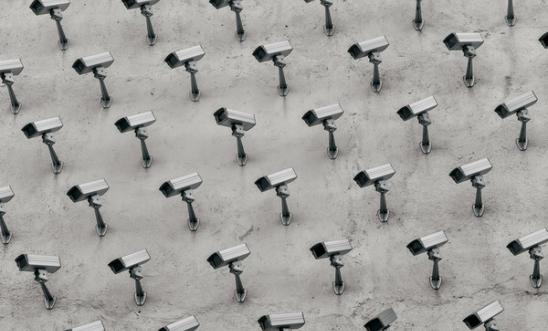
Press releases
France: Bill to set up AI-driven mass surveillance at 2024 Olympics is 'dystopian'

Proposals could see first pervasive AI-powered mass video surveillance in an EU country
Legacy of London Olympics was permanent extension of surveillance
‘Every action in a public space will get sucked into a dragnet of surveillance infrastructure’ - Agnès Callamard
A proposed bill which is set to go to a plenary vote at France’s National Assembly over whether to use video surveillance powered by artificial intelligence at next year’s Paris Olympics, could result in dystopian levels of surveillance and must be rejected, Amnesty International has said today.
If passed the draft bill, which was approved by French senators in January, will legalise the use of a pervasive AI-powered mass video surveillance system for the first time in France and in any European Union country.
According to French lawmakers, the surveillance system is “experimental” and will be used to ensure safety and security during the games. However, Amnesty fears the bill will expand police powers by broadening the government’s arsenal of surveillance equipment on a permanent basis. Following the 2012 London Olympics, numerous surveillance measures used during the event became permanent.
If the proposed surveillance measures in France are implemented, millions of people will be tracked and monitored. AI algorithms scan and capture data from anyone within its radius. The ubiquitous presence of CCTV cameras and drones at the Games - allowing officials to detect so-called “suspicious” or “abnormal” activity in the crowds - is particularly problematic.
If France legalises mass surveillance, one of the world’s biggest sporting events risks becoming one of the greatest-ever violations of the right to privacy.
Agnès Callamard, Amnesty International’s Secretary General, said:
“French lawmakers have failed to prove that this legislation meets the principles of necessity and proportionality.
“While the need for security during the event is understandable, international human rights law still applies to the Olympics.
“In their existing format, these blanket applications of AI-driven mass surveillance are in complete violation of the right to privacy and other rights.
“Every action in a public space will get sucked into a dragnet of surveillance infrastructure, undermining fundamental civic freedoms.
“These technologies amplify racist policing and threaten the right to protest. Ethnic minorities - including migrants, and Black and Brown people - are most at risk of being targeted by certain surveillance tools, especially facial recognition systems.
“Through its AI Act negotiations, the EU should put an end to the use of artificial intelligence technologies used for mass surveillance and for discriminatory monitoring of civilians.
“We are also calling for a ban of facial recognition systems used for mass surveillance.”
Civil society coalition
The text of the bill was approved by the French senate on 31 January and cleared a legislative hurdle on 8 March after a committee vote. In an open letter initiated by the European Center for Not-for-Profit Law, 38 civil society organisations - including Amnesty - have called on French lawmakers to reject the draft legislation. Amnesty - alongside a coalition of civil society organisations led by the European Digital Rights Network - has been calling for human rights-compliant EU regulation of artificial intelligence technologies and practices. Amnesty has previously documented the use of thousands of facial recognition-capable CCTV cameras across New York City, many of which were used in communities of colour and amplified racially discriminatory policing.